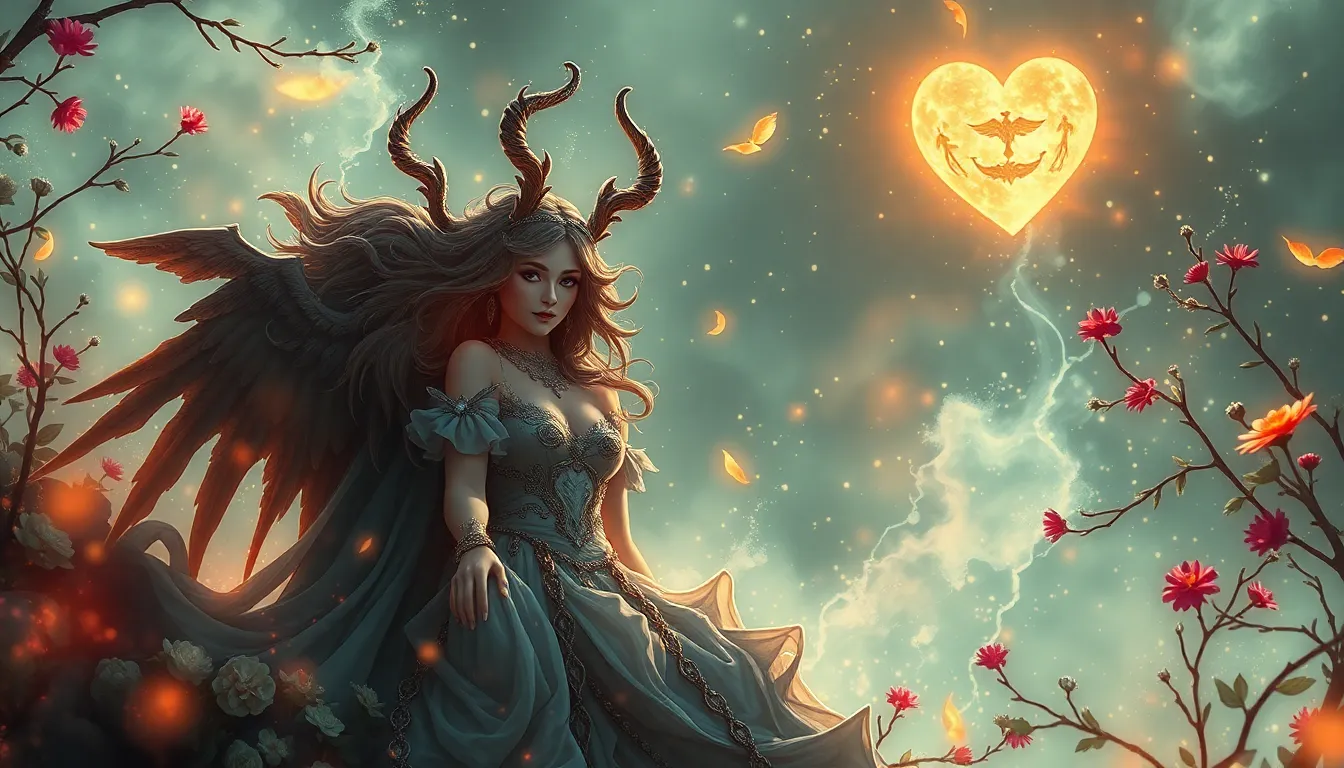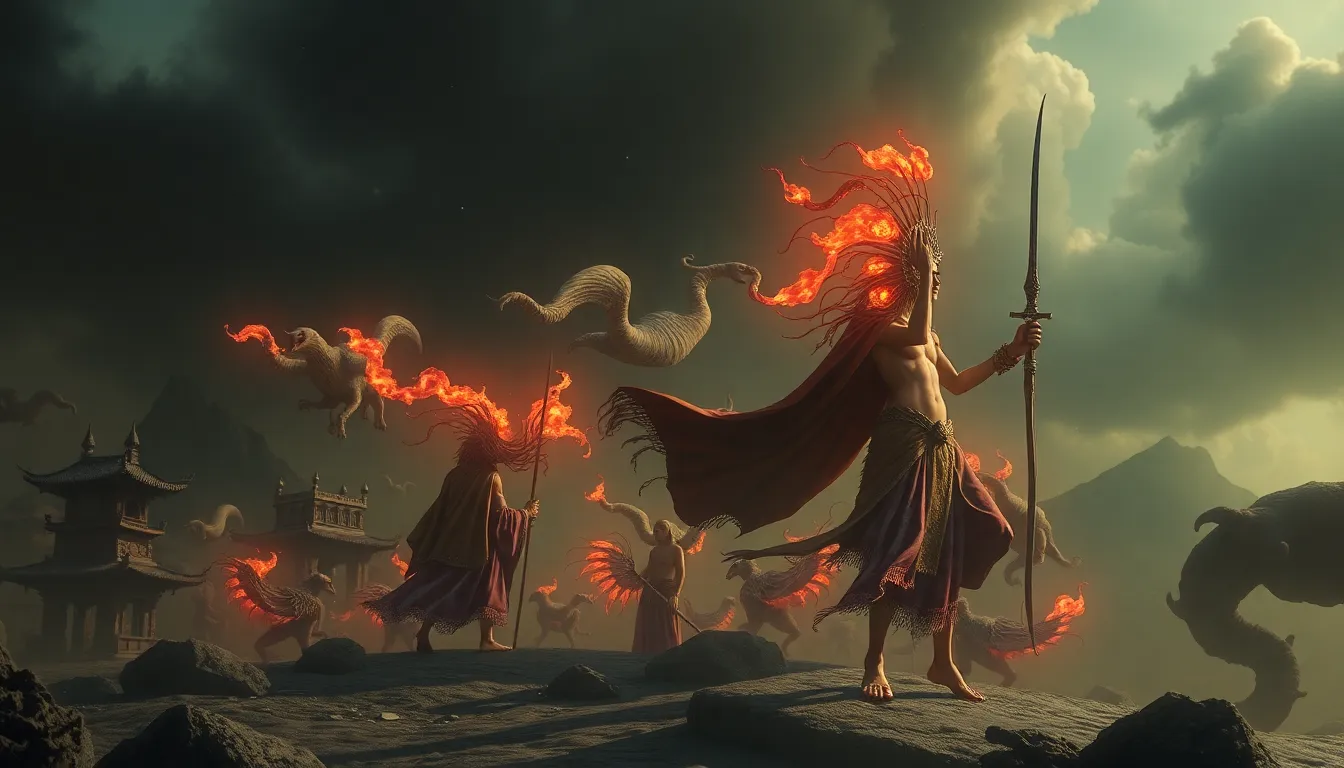The Enchantment of Love: Magical Myths That Captivate the Heart
Introduction to Love Myths
Love myths are timeless tales that explore the depths of human emotions and relationships. They serve not only as entertainment but also as cultural artifacts that reflect societal values and beliefs about love. Myths about love encapsulate the essence of romantic ideals, desires, and the complexities of human connection. They shape our understanding of what it means to love and be loved, influencing how we view romantic relationships in our own lives.
The Role of Mythology in Romantic Narratives
Throughout history, love myths have played a crucial role in the romantic narratives of ancient civilizations. They offer insight into the values and norms of their respective cultures, often portraying love as a powerful force that can lead to both joy and suffering.
- Greek Mythology: The tale of Eros and Psyche illustrates the trials of love and the challenges of trust.
- Roman Mythology: The story of Venus and Mars highlights the passionate and tumultuous nature of love.
- Indian Mythology: The divine love story of Radha and Krishna reflects the spiritual dimensions of love.
The Archetypal Lovers: Figures of Enchantment
Many love myths feature archetypal figures that resonate across cultures. These archetypes include:
- Star-crossed lovers: Couples destined to be together but thwarted by external circumstances, as seen in Romeo and Juliet.
- Forbidden love: Relationships that face societal taboos, such as the love between Tristan and Isolde.
- Unrequited love: Stories of longing and desire without reciprocity, illustrated by characters like Orpheus.
These archetypes significantly influence contemporary perceptions of romance, often serving as templates for modern love stories in literature and film.
Love and Transformation: Metamorphosis in Myths
Transformation is a recurring theme in love myths, where love leads to profound changes—both physical and emotional. In many stories, love acts as a catalyst for metamorphosis.
Notable case studies include:
- Eros and Psyche: Psyche’s journey from mortal to divine reflects the transformative power of love and trust.
- Orpheus and Eurydice: Orpheus’s descent into the underworld to reclaim his love demonstrates the lengths one will go for love.
These narratives illustrate how love can inspire growth, courage, and change, emphasizing its transformative nature.
Divine Interventions: The Influence of Gods and Goddesses
In many love myths, gods and goddesses play pivotal roles in shaping romantic destinies. Their interventions often highlight the complexities of love and desire.
Key deities associated with love include:
- Aphrodite: The Greek goddess of love, beauty, and desire, often instigating romantic entanglements.
- Venus: The Roman equivalent of Aphrodite, representing love’s duality of pleasure and pain.
- Kama: The Hindu god of love, whose arrows inspire desire and passion.
These divine love stories not only entertain but also reflect human emotions, illustrating how love can be both a gift and a curse.
The Symbolism of Love in Folklore and Fairy Tales
Folklore and fairy tales are rich with symbols that convey deeper meanings of love. Common symbols include:
- Roses: Often symbolize love and beauty, but also the thorns of heartache.
- Doves: Represent peace and fidelity, often seen as love’s messengers.
- Enchanted objects: Items like magic mirrors or glass slippers signify the transformative power of love.
These symbols enrich the narrative of love stories, providing layers of meaning that resonate with audiences across generations.
The Dark Side of Love: Myths of Tragedy and Loss
Not all love stories end happily; many myths portray love as a source of tragedy and loss. These narratives often explore themes such as jealousy, sacrifice, and unrequited love.
Some prominent examples include:
- Hephaestus and Aphrodite: The tale of unfaithfulness and betrayal highlights the darker aspects of desire.
- Hades and Persephone: Their story reflects themes of separation and longing, symbolizing the cycles of life and death.
- The myth of Pygmalion: A sculptor who falls in love with his own creation, it underscores the pain of unattainable love.
These stories serve as cautionary tales about the perils of love, reminding us that it can lead to profound sorrow as well as joy.
Cultural Variations: Love Myths Across the Globe
Love myths vary significantly across cultures, each reflecting unique societal values and beliefs. Some examples include:
- Chinese Mythology: The story of the Cowherd and the Weaver Girl illustrates the theme of love separated by fate.
- African Mythology: The tale of the Great Spider Anansi embodies the cleverness and resilience found in love.
- Native American Mythology: Many stories feature nature and the elements as expressions of love and connection.
These diverse myths provide insights into how different cultures interpret love, highlighting both universal themes and unique perspectives.
Modern Interpretations: Love Myths in Contemporary Literature and Media
Ancient love myths continue to inspire modern storytelling, resonating with contemporary audiences through literature, film, and television. Examples of reimagined love myths include:
- The Fault in Our Stars by John Green: A modern take on star-crossed lovers facing illness and fate.
- The Shape of Water: A film that reinterprets the myth of Beauty and the Beast through a unique love story.
- Eternal Sunshine of the Spotless Mind: Explores themes of memory and love, reminiscent of ancient myths about desire and loss.
These modern interpretations demonstrate the enduring relevance of love myths and their ability to evolve while retaining their core themes.
Conclusion: The Enduring Power of Love Myths
Love myths continue to captivate our hearts and minds, reminding us of the complexities and beauty of human relationships. In today’s society, where love can often feel fleeting and complicated, these ancient tales provide comfort and insight. By exploring the narratives of love from various cultures and epochs, we can gain a deeper understanding of our own experiences of love.
Ultimately, love myths enrich our lives, offering timeless lessons about connection, sacrifice, and the transformative power of love. As we navigate our own romantic journeys, these enchanting stories remind us that love, in all its forms, is a universal experience that transcends time and culture.



